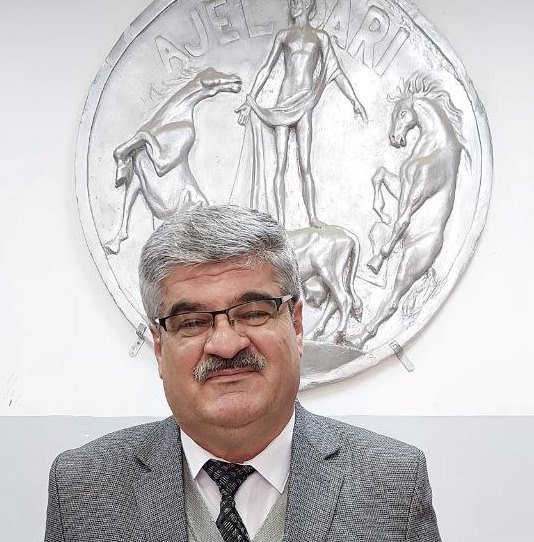On the occasion of World Veterinary Day 2025:
The Role of University and Higher Veterinary Education in Developing the Skills of Newly Graduated Veterinarians in Iraq

Professor Dr. Salah Mahdi Hassan
Consultant Specialist and Poultry Health and Production Expert
22/4/2025
On World Veterinary Day 2025, it is worth highlighting the pivotal role university veterinary education plays in preparing new veterinarians for the demands of field work in Iraq. Veterinary medicine is a fundamental pillar in protecting livestock, community health, and food safety, making developing graduates’ skills an urgent necessity to meet field challenges.
The Importance of Initial Veterinary Education in Building a Knowledge Foundation
Veterinarian training begins at the undergraduate level, as veterinary colleges in Iraq offer an academic curriculum that includes:
1. Basic sciences such as anatomy, physiology, biochemistry, and pathology, as well as pharmacology and toxicology, which form the foundation for understanding and treating diseases.
2. Clinical sciences such as surgery, reproductive medicine, internal medicine, pathological diagnosis, and poultry diseases, which provide students with applied knowledge.
3. Practical training in veterinary hospitals and fields, and visits to specialized veterinary facilities, including large animal and poultry slaughterhouses, feed mills, and dairy stations, through which students gain direct experience in dealing with real-life cases.
4. However, veterinary education in Iraq faces challenges such as a lack of laboratory equipment and the failure of some curricula to keep pace with recent developments in the global veterinary medicine sector, which calls for continuous development of academic programs.
The Role of Higher Education and Continuing Education in Sharpening Skills:
Veterinary qualification does not stop at graduation. Rather, it requires specialized higher education and intensive practical training. This can be achieved through:
– Enrollment in continuing education programs approved by Iraqi veterinary colleges.
– Postgraduate programs (master’s and doctoral degrees) that allow specialization in fields such as microbiology (viruses, bacteria, and parasites), internal medicine, veterinary surgery, and poultry diseases.
– Workshops and training courses organized by the Iraqi Veterinary Syndicate, whether at the general headquarters in Baghdad or the Syndicate’s branches in the governorates, as well as those organized by international organizations such as the Food and Agriculture Organization (FAO) to familiarize doctors with the latest diagnostic and therapeutic techniques.
– Cooperation with the private sector and local or international sectoral organizations and institutions (FAO) to improve field skills.
Challenges of Field Work in Iraq And how to overcome them
Newly graduated veterinarians in Iraq face several difficulties, including:
1- The Iraqi government’s failure to implement Veterinary Medical Training Law No. (136) of 1980, amended twice, the last of which was on March 15, 2021. This law allows newly graduated veterinarians to work as a resident for one year in one of the veterinary teaching hospitals in Baghdad and the governorates, followed by a period of three years as a senior resident in all animal communities, including districts, sub-districts, and towns. Consequently, this failure to implement it deprives recent graduates of the opportunity to gain exposure to field work and real livestock problems. The Iraqi government must be aware that the failure to implement Veterinary Training Law No. 136 of 1980 and its amendments causes significant harm to the veterinary education process and to the educational capacity and skills of recent graduates from veterinary colleges. This is unacceptable under any pretext.
2- Lack of resources in government and private sector veterinary clinics and laboratories.
3- Lack of community awareness of the importance of veterinary medicine in animal care and prevention of common diseases. 3. The need to update the legislation regulating the veterinary profession and guaranteeing the rights of workers in this field. Therefore, the Iraqi Veterinary Syndicate is currently making a serious effort to radically amend the Veterinary Syndicate Law No. (210) of 1980.
4. The need to update the legislation that regulates the veterinary profession and guarantees the rights of workers in this field. Therefore, there is a serious attempt by the Iraqi Veterinary Doctors Syndicate currently to make a radical amendment to the Veterinary Doctors Syndicate Law No. (210) of 1980.
To address these challenges, steps can be taken, such as:
– Strengthening partnerships between universities, represented by Iraqi veterinary colleges, and the private sector to improve the infrastructure for veterinary training for graduates.
– Incorporating mandatory field training programs before graduation, such as utilizing the summer vacation to conduct field training in all areas with livestock, which should be mandatory and credited.
– The Veterinary Syndicate must play a significant role in providing ongoing support to young doctors.
In conclusion, I say:
On World Veterinary Day 2025, we must emphasize that developing university and higher veterinary education is an investment in the future of animal and human health in Iraq. By updating curricula, enhancing practical training, and providing ongoing support to newly graduated doctors, the efficiency and empowerment of the veterinary sector can be enhanced. To effectively face field challenges.



